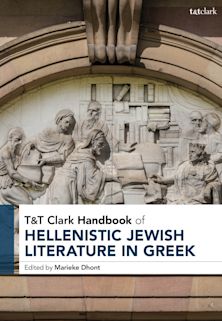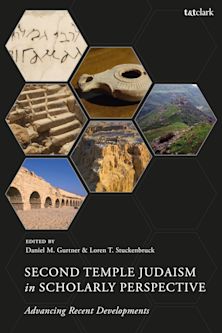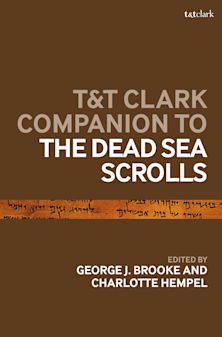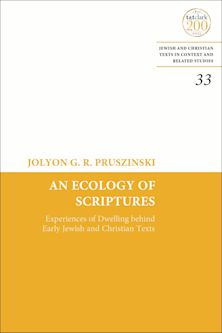- Home
- ACADEMIC
- Biblical Studies
- Early Jewish Writings and History
- Vulnerability and Valour
Vulnerability and Valour
A Gendered Analysis of Everyday Life in the Dead Sea Scrolls Communities
Vulnerability and Valour
A Gendered Analysis of Everyday Life in the Dead Sea Scrolls Communities
You must sign in to add this item to your wishlist. Please sign in or create an account
Description
Jessica M. Keady uses insights from social science and gender theory to shed light on the Dead Sea Scrolls and the community at Qumran. Through her analysis Keady shows that it was not only women who could be viewed as an impure problem, but also that men shared these characteristics as well.
The first framework adopted by Keady is masculinity studies, specifically Raewyn Connell's hegemonic masculinity, which Keady applies to the Rule of the Community (in its 1QS form) and the War Scroll (in its 1QM form), to demonstrate the vulnerable and uncontrollable aspects of ordinary male impurities. Secondly, the embodied and empowered aspects of impure women are revealed through an application of embodiment theories to selected passages from 4QD (4Q266 and 4Q272) and 4QTohorot A (4Q274). Thirdly, sociological insights from Susie Scott's understanding of the everyday - through the mundane, the routine and the breaking of rules - reveal how impurity disrupts the constructions of daily life. Keady applies Scott's three conceptual features for understanding the everyday to the Temple Scroll (11QTa) and the Rule of the Congregation (1QSa) to demonstrate the changing dynamics between ordinary impure males and impure females.
Underlying each of these three points is the premise that gender and purity in the Dead Sea Scrolls communities are performative, dynamic and constantly changing.
Table of Contents
Preface and Acknowledgements
Abbreviations
Chapter I: Introduction
Chapter II: The Debate about Purity and Impurity in the Dead Sea Scrolls
Chapter III: Purity and Impurity in the Dead Sea Scrolls: Masculinity, Embodiment and the Everyday as Methodological Tools
Chapter IV: Masculinity Studies and the Men of the Dead Sea Scrolls Communities
Chapter V: Thinking Beyond the Abstract: Towards an Embodied Reading of Purity in 4QDg (4Q272), 4QDa (4Q266) and 4QTohorot A (4Q274)
Chapter VI: Everyday Living and the Constructions of Spatial Privacy in the Dead Sea Scrolls Communities Focusing on the Temple Scroll (11QTa) and the Rule of the Congregation (1QSa)
Conclusion: Beyond an Abstract Reading of Purity
Bibliography
Index of Biblical Passages
Index of Names
Index of Subjects
Product details
| Published | 23 Feb 2017 |
|---|---|
| Format | Ebook (PDF) |
| Edition | 1st |
| Extent | 240 |
| ISBN | 9780567672254 |
| Imprint | T&T Clark |
| Series | The Library of Second Temple Studies |
| Publisher | Bloomsbury Publishing |
About the contributors
Reviews
-
Keady's erudite book combines insights from all of textual analysis, theory of gender and im/purity and archaeology to construct a nuanced and plausible picture of everyday Essene life ... A welcome foray of gender and masculinity into the corpus of DSS writings.
The Expository Times
-
An excellent and promising exemplar of the interdisciplinary, social-scientifically oriented direction of research which should be discussed in both Dead Sea Scrolls scholarship and beyond.
Journal of Semitic Studies
-
[This book] is well structured and the argumentation is clear and straightforward. When referring to ancient texts, Keady provides both the ancient text and its translation ... Sheds new light on the DSS and the community at Qumran by providing insights into the everyday experience of purity and impurity ... This is a major contribution to the topics of purity, women, and gender in the DSS and the Qumran communities.
Biblische Notizen
-
"Thought-provoking and insightful. Keady offers a fresh perspective that will ... shape further discourse on this important topic."
Review of Biblical Literature

ONLINE RESOURCES
Bloomsbury Collections
This book is available on Bloomsbury Collections where your library has access.



































